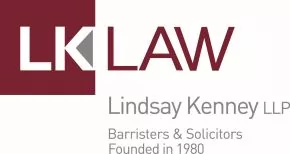- with Inhouse Counsel
- with readers working within the Healthcare, Oil & Gas and Law Firm industries
Canada's anti-spam legislation (CASL) has now been in force for almost two years. However, many businesses still find it difficult to understand and some still struggle to be compliant with the new law.
For the most part, CASL is designed to restrict the transmission of unwanted electronic information (such as spam). Although reducing the amount of spam out there is arguably a good thing, the law places an additional burden on businesses, marketing teams, and individuals because of the effort needed to ensure compliance. And, sure enough, trying to make sure you are not running afoul of the law can be complicated, tedious, and difficult.
The general restriction
CASL prohibits the sending of a "Commercial Electronic Message" to an electronic address unless certain requirements are met. One of those requirements is consent; the message must only be sent to someone who has consented to receiving it. Consent can be either express or implied. CASL then specifically sets out how those two forms of consent can be obtained.
In addition to consent, the contents of the message must meet the prescribed form requirements, which include:
- identifying who the sender is (and also, if the message is sent on someone's behalf, that person as well);
- contact information of the person who sent the message; and
- an unsubscribe mechanism.
CASL then further sets out the details of how to do each of these three things.
Commercial electronic message
Whether or not CASL applies to you or your business really turns on the meaning of "Commercial Electronic Message". The definition is arguably very broad, capturing a vast amount of electronic communication.
Commercial Electronic Message is defined as an "Electronic Message" where, having regard to the content, hyperlinks, or contact information contained in the message, it would be reasonable to conclude that themessage has a purpose (or one of its purposes is) to encourage participation in a commercial activity. This includes messages that:
- offer to purchase, sell, or lease a product, goods, or a service;
- offer to provide a business, investment or gaming opportunity; or
- advertises or promotes anything referred to in the two items above.
"Electronic Message" is further defined to be a message sent by any means of telecommunication, including a text, sound, voice, or image message.
Exceptions
As one can imagine, CASL casts a very large net. It will capture most electronic communications that are sent with a commercial purpose. Fortunately, CASL, does provide some exceptions. These allow Commercial Electronic Messages to be sent without having to meet the above requirements. For instance, the restriction does not apply to two-way interactive voice communications (ie telephone calls). Also, there are exceptions for inquiries that are made to businesses and also for communication between individuals that have a personal or familyrelationship. But, ultimately even these exceptions have their own requirements and whether or not one of them is available will depend on the circumstances.
Enforcement
The Canadian Radio-television and Telecommunications Commission (CRTC) enforces CASL. Although the CRTC has a number of tools at its disposal, Notices of Violations and monetary penalties are likely to be the biggest concern for businesses. Although the amount of the penalty can vary, the maximums are set at $1,000,000 for individuals, and $10,000,000 in the case of other entities such as corporations.
Given the amounts that can be involved, potential enforcement by the CRTC should not be taken lightly. Furthermore, when it comes to businesses, CASL has provisions that allow officers, directors, or agents of a corporation to be held personally liable in certain circumstances. CASL also allows employers to be held vicariously liable for any CASL violations committed by their employees.
Recent violations
With all that said, the CRTC has been quite active in enforcing CASL. There has been a series of enforcement actions in the past year, demonstrating that businesses and other organizations need to take CASL seriously. For instance:
- In March 2015, "Compu.Finder" was issued a Notice of Violation and a monetary penalty of $1,100,000; their violations were for sending Commercial Electronic Messages without the recipient's consent and for sending some Commercial Electronic Messages that had an unsubscribe mechanism that did not function properly.
- In June 2015, Porter Airlines Inc. agreed to pay $150,000 for alleged violations; those allegations included the sending of Commercial Electronic Messages that did not have an unsubscribe mechanism and that did not provide complete identification information. Also, Porter Airlines was unable to provide proof of consent for some of the email addresses where the messages were sent.
- In November 2015, Rogers Media Inc. paid $200,000 for alleged violations; those allegations included the sending of Commercial Electronic Messages that contained an unsubscribe mechanism that could not be "readily performed".
About Mackrell International – Canada - Lindsay Kenney LLP is a full service business law firm with offices in Vancouver and Langley, BC and a member of Mackrell International. Mackrell International – Canada is comprised of four independent law firms in Alberta, British Columbia, Ontario and Quebec. Each firm is regionally based and well-connected in our communities, an advantage shared with our clients. With close relations amongst our Canadian member firms, we are committed to working with clients who have legal needs in multiple jurisdictions within Canada.
This article is intended to be an overview and is for informational purposes only.


